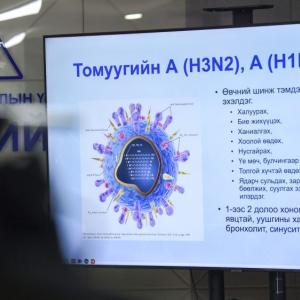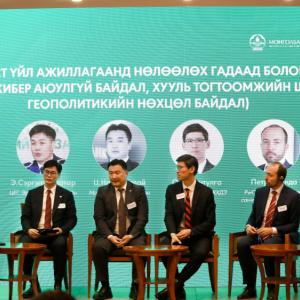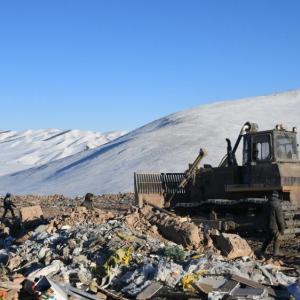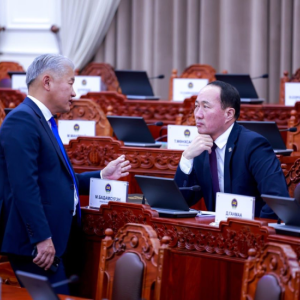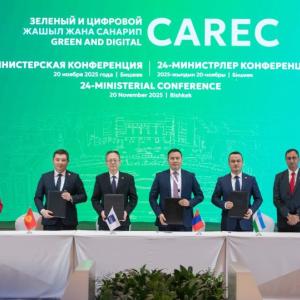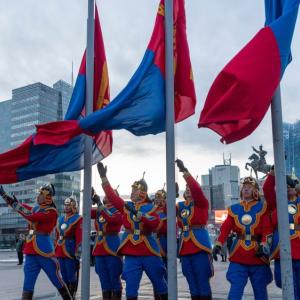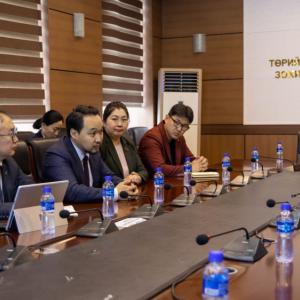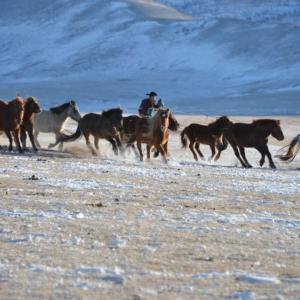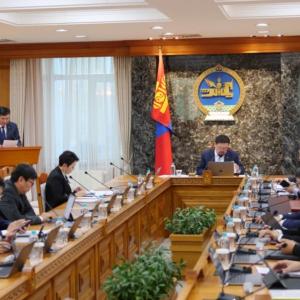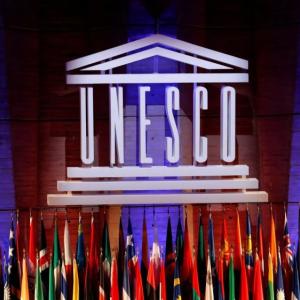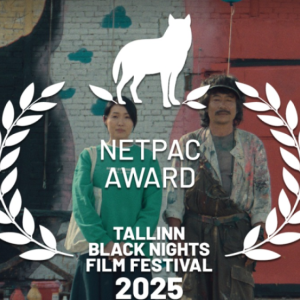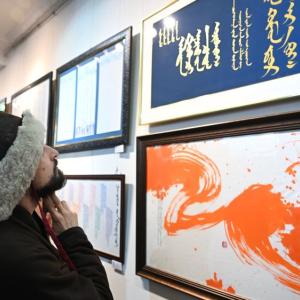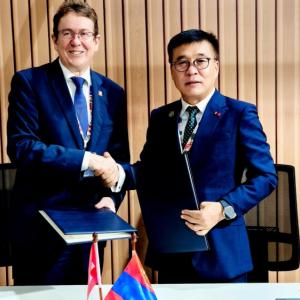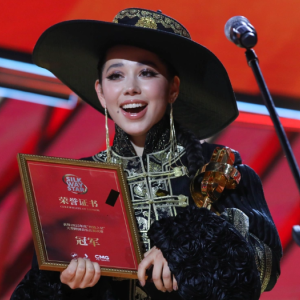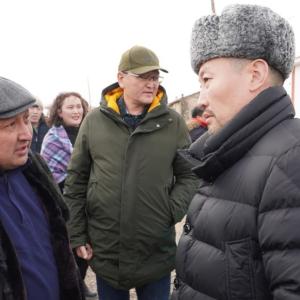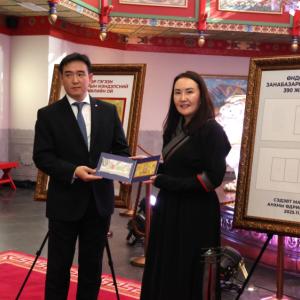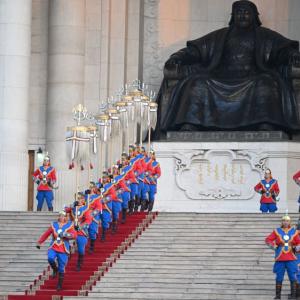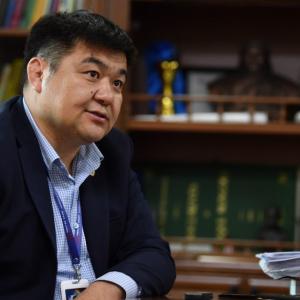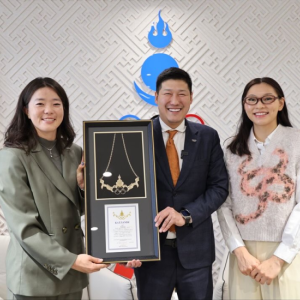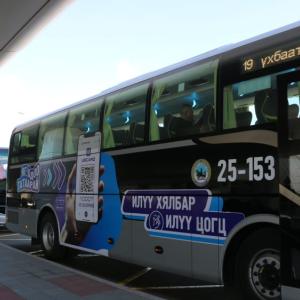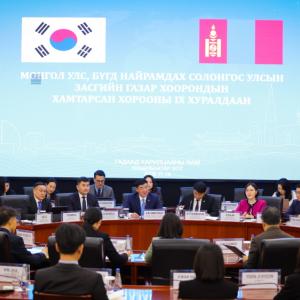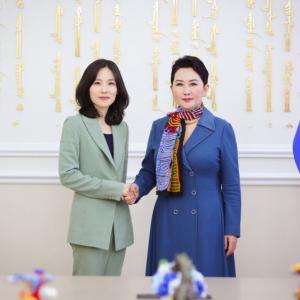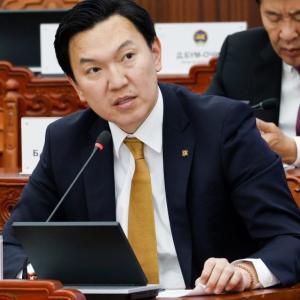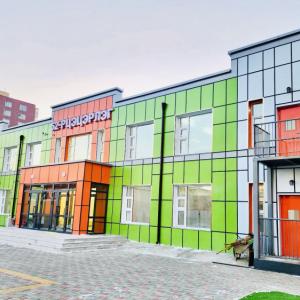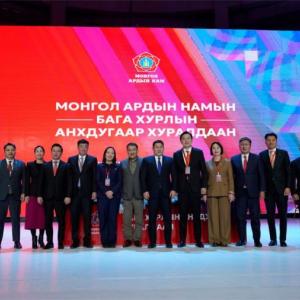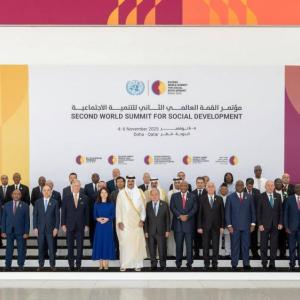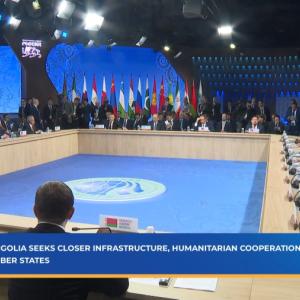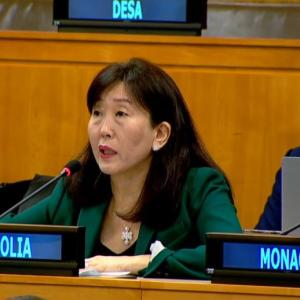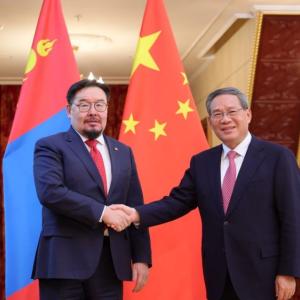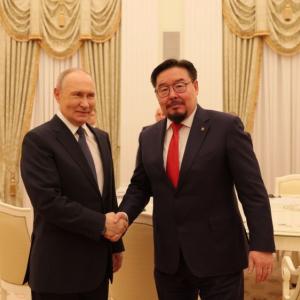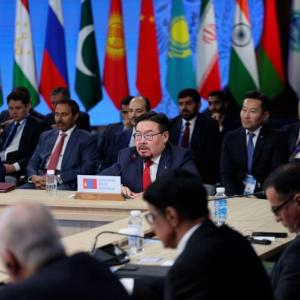Mongolia Celebrating the “Golden Autumn-2024” Harvest Festival
Society
Ulaanbaatar, October 21, 2024 /MONTSAME/. In commemoration of the 65th anniversary of the cultivation of the "Virgin Lands" and in line with the "Food Supply and Security" National Movement, the "Golden Autumn-2024" Harvest Festival is taking place in Darkhan City, Darkhan-Uul aimag.
President Khurelsukh opened the Festival, highlighting Mongolia’s historical success and achievements in conducting three Campaigns for Reclaiming Virgin Lands to secure domestic food demand and export agricultural products. The Head of State underscored, “One of the crucial aspects of national security is ensuring safe living conditions for citizens and providing healthy and safe food, which requires a focused effort on the environment, food supply, and security. Therefore, the “One Billion Trees,” “Food Supply and Security,” “Healthy Mongolian,” and “White Gold” National Movements are being implemented nationwide. Currently, in line with the “Food Supply and Security” National Movement, 35 government organizations are collaboratively implementing 114 types of activities, including legal and regulatory, financial and budgetary, soft loans, and tax breaks and exemptions.”
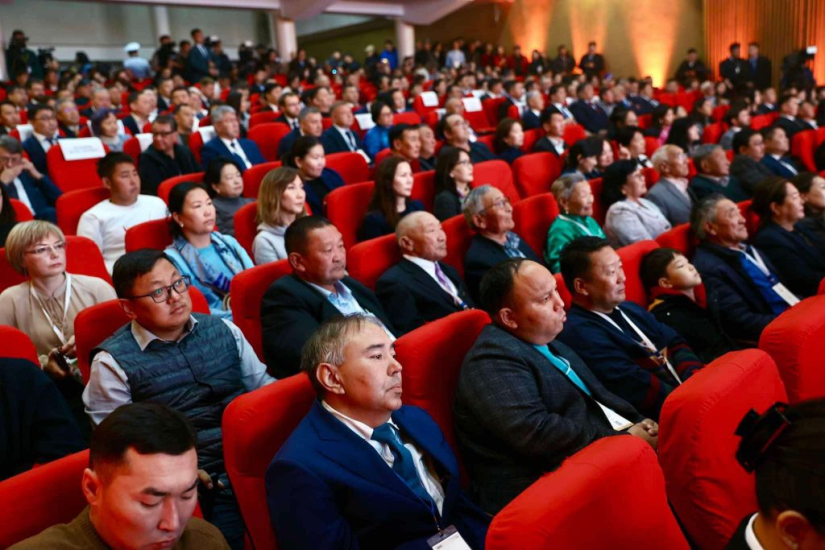
Over the past two years of the implementation of the “Food Supply and Security” National Movement, commercial banks have granted MNT 1.3 trillion in soft loans with a 5-6 percent interest rate with a duration of 3-5 years to around 3,100 food producers and enterprises. President Khurelsukh noted that the soft loans resulted in 24 new food production facilities and around 85 percent of domestic vegetable demands have been met domestically in 2023. The Head of State expressed confidence that the successful implementation of the National Movements will open up new opportunities in food, agriculture, and light industry sectors while bringing numerous positive outcomes in ensuring a balanced urban-rural development, enhancing trade, exports, investments, and job availability and reducing poverty.
Mongolia has set a goal of becoming a “Healthy Food Producing and Food-Exporting Country,” with plans to develop Darkhan-Uul, Selenge, and Tuv aimags into a “Subregion for Diversified Agriculture and Industry.” In connection with these, the State Great Khural of Mongolia and the Government of Mongolia have adopted a Resolution regarding the relocation of the Ministry of Food, Agriculture, and Light Industry of Mongolia to Darkhan-Uul aimag. Head of State Khurelsukh noted that certain results and achievements are expected to be reached in the development of an eco-friendly agricultural sector promoting regional and sustainable development.
Particularly, the public and private sectors will focus on:
-Implementing policies and reforms that would elevate the agricultural sector, supporting green development, reducing the effects of climate change, desertification, and sandstorms through advanced technology and innovation aligned with global standards and export orientation,
-Establishing agricultural clusters and complexes to promote regional development; improving supply chain logistics; creating small and medium-sized enterprises, building a unified system for raw material procurement and sales; preparing future specialists in the field,
-Accounting for hygiene and quality standards in all stages; strengthening safety controls,
-Optimizing the use of budget and capital resources; ensuring optimal and accessible financial leverages, such as loans, tax incentives, and insurance; supporting cooperation and investments in the private sector.
These efforts will aim to provide citizens with reliable, safe, locally produced healthy food, create workplaces, and improve life standards, leading Mongolia to become a food-exporting nation.
Ambassador Extraordinary and Plenipotentiary of the Russian Federation to Mongolia Evsikov Alexey Nikolaevich extended congratulations on the 65th anniversary of bringing virgin lands into cultivation. Ambassador Evsikov A.N. recalled the Soviet Union’s contributions in providing agricultural technology, equipment, and expertise to establish a scientifically-based agricultural sector in Mongolia, describing it as a testament to the shared history of the two nations. Mr. Evsikov further expressed confidence that the redevelopment of Darkhan-Uul aimag and Darkhan City, the establishment of new facilities in the region, and the increase of the volume of exported goods under the “Food Supply and Security” and “White Gold” National Movements would further contribute to strengthening and balancing Mongolia-Russia trade relations.

At the “Golden Autumn-2024” Harvest Festival, an exhibition and auction of vegetables, light industry products, agricultural technologies, and premium livestock took place.
During his visit to the Exhibition, President Khurelsukh met with agricultural entrepreneurs, farmers, representatives of the enterprises in the food, agriculture, and light industry sectors, as well as citizens, and observed a parade of agricultural machinery.
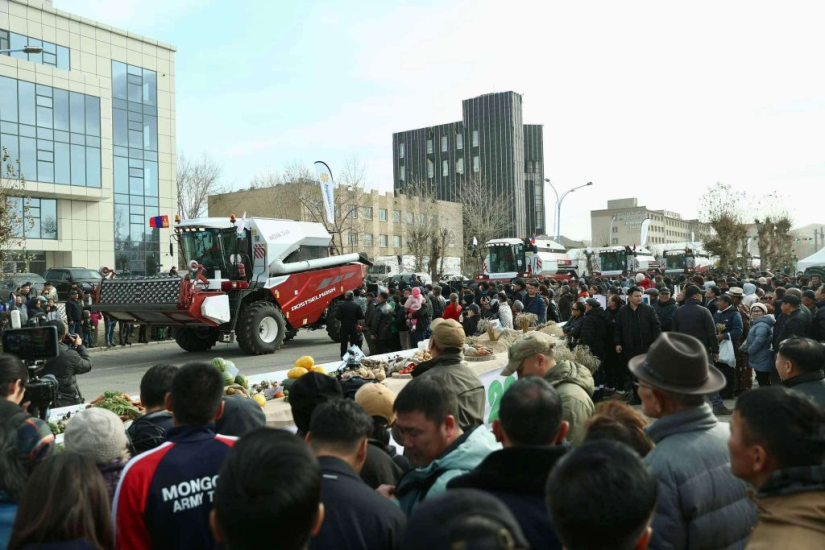
Notably, the First Campaign for Reclaiming Virgin Lands launched in 1959, resulted in the establishment of ten collective farms, a university for training national experts in the agricultural sector, and a research institution. Over six years, around one million hectares of virgin land were cultivated, and for the first time, 516 thousand tons of grain were harvested. The Second Campaign for Reclaiming Virgin Lands, which began in 1976, expanded the cultivated area to 1.2 million hectares by 1989, producing 840,000 tons of grain, 150,000 tons of potatoes and vegetables, and over one million tons of fodder and hay. However, due to social and economic transition, the food, agricultural, and light industry sectors have faced certain challenges. Consequently, more than 70 percent of grain and flour, and over 50 percent of potatoes and vegetables were imported, and by 2005, the grain production dropped to 77 thousand tons, a more than 90 percent decrease in production compared to during the Second Campaign for Reclaiming Virgin Lands.

In response, the Government of Mongolia implemented the Agriculture Development National Program or the Third Campaign for Reclaiming Virgin Land from 2008-2010, which resulted in the total recovered farmlands to 650 thousand hectares, reaching self-sufficiency in wheat and potato production.


 Ulaanbaatar
Ulaanbaatar









